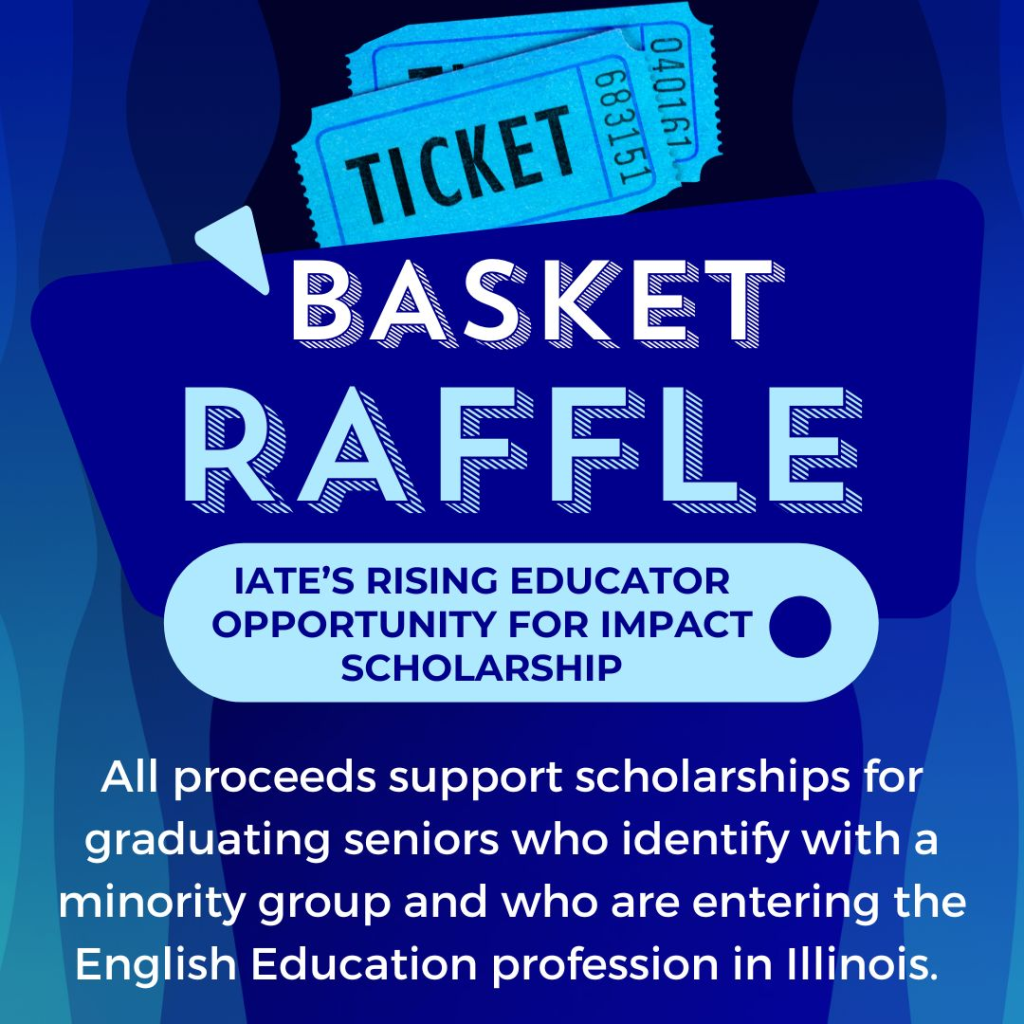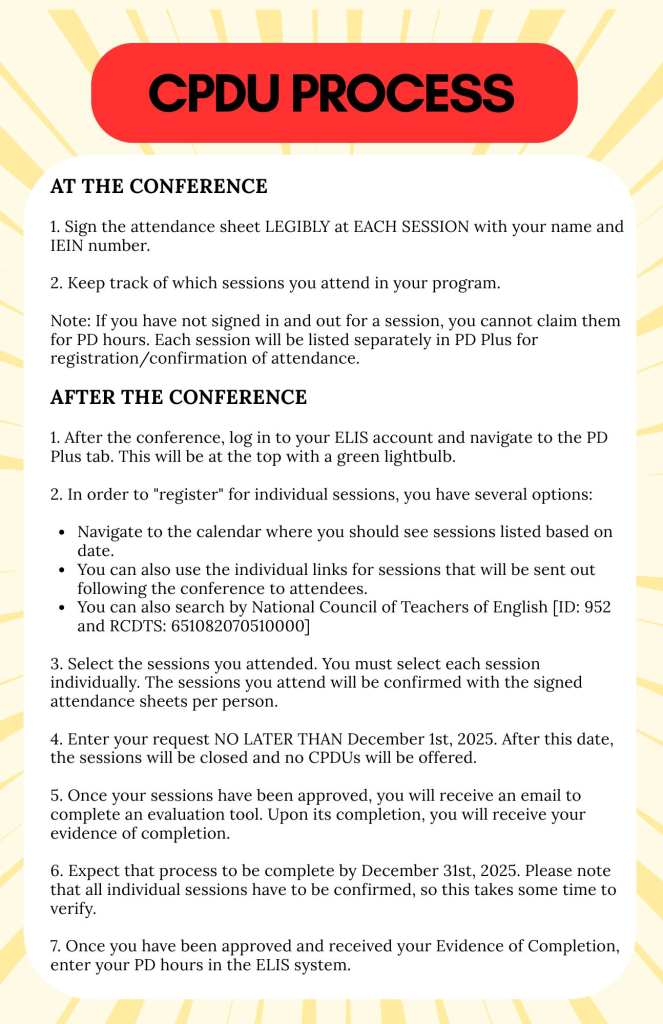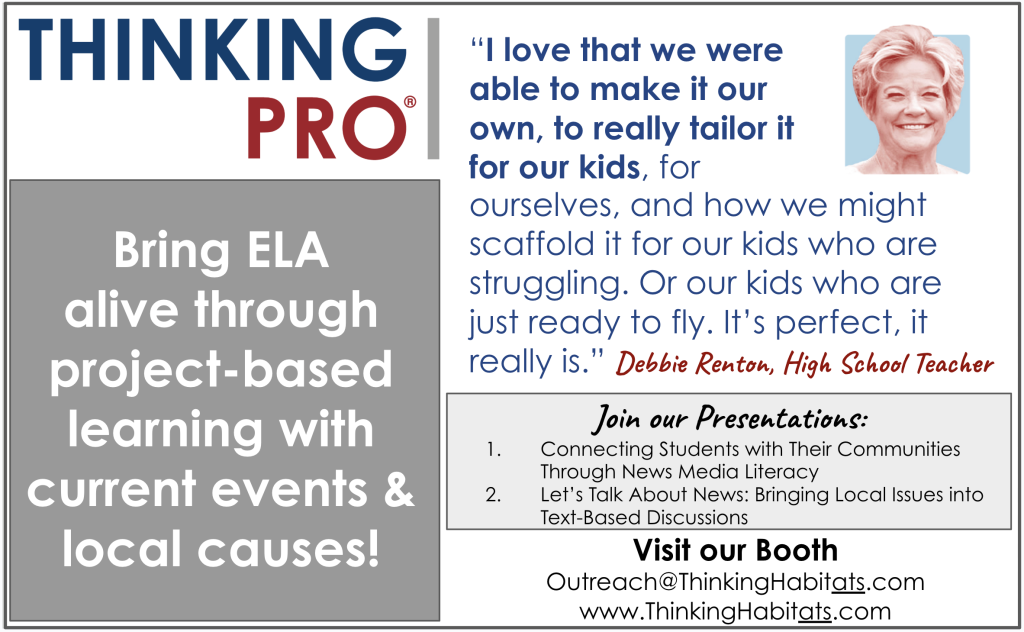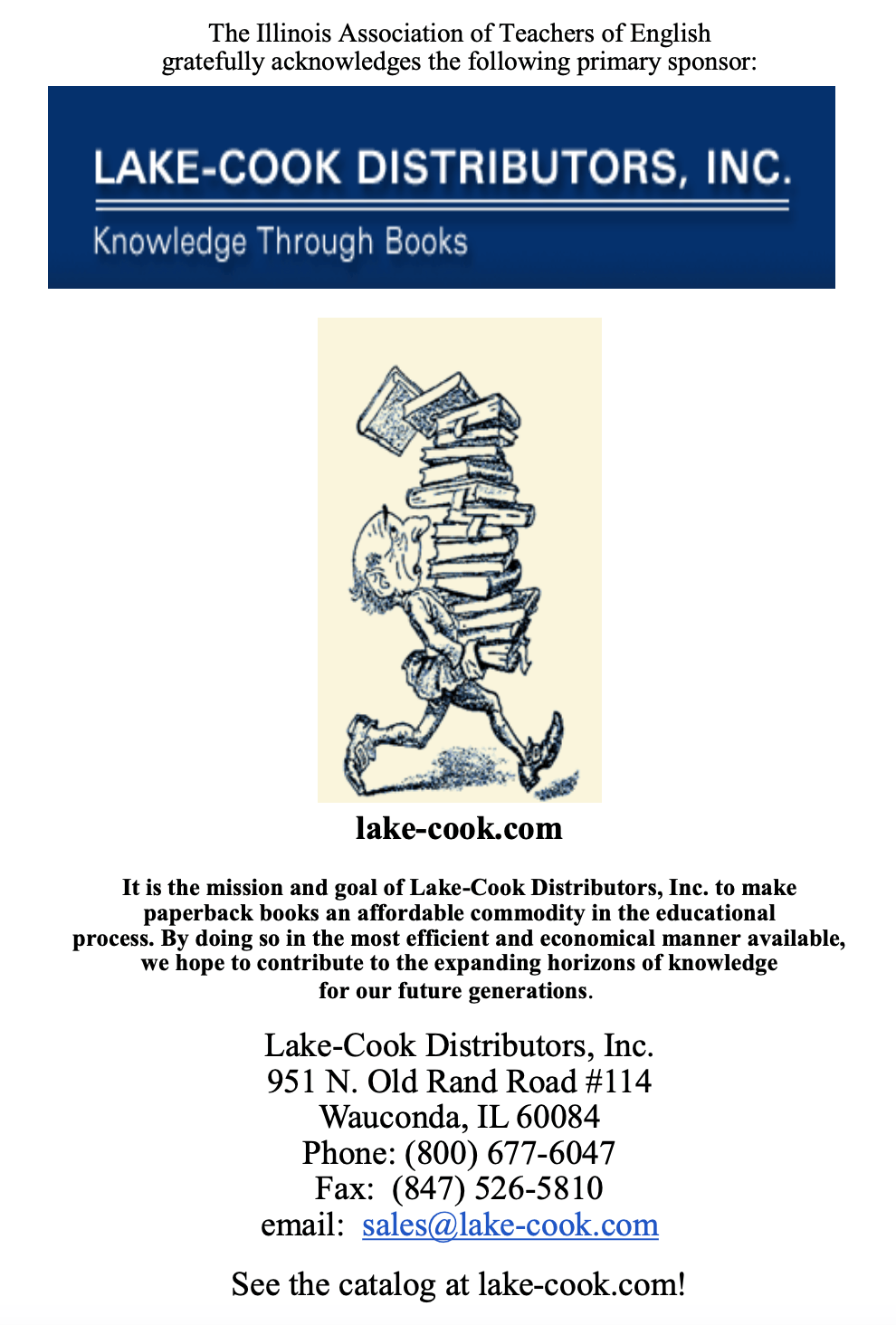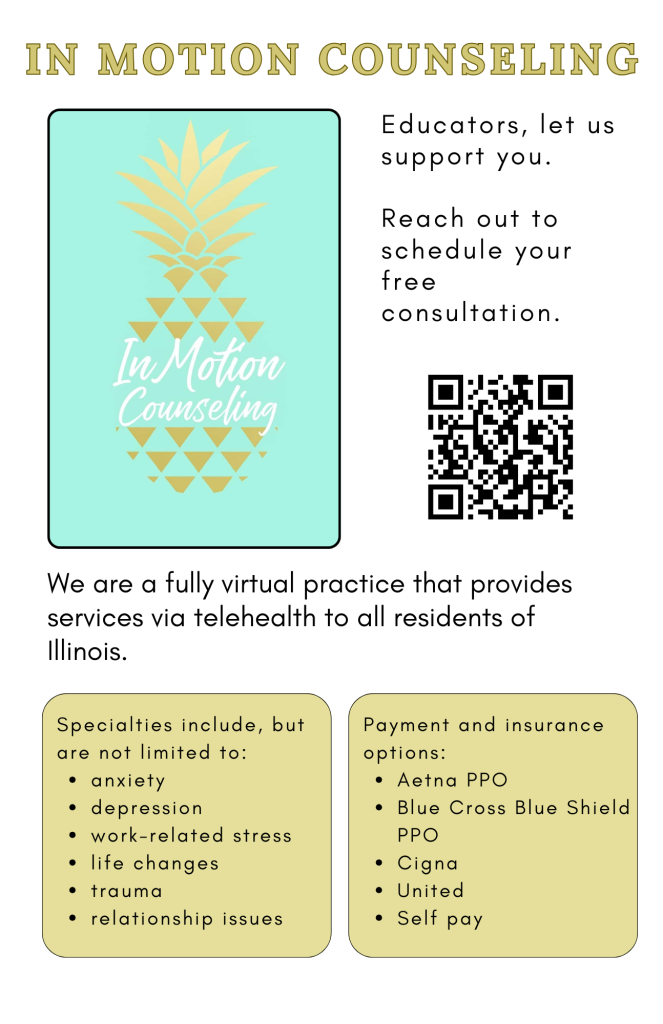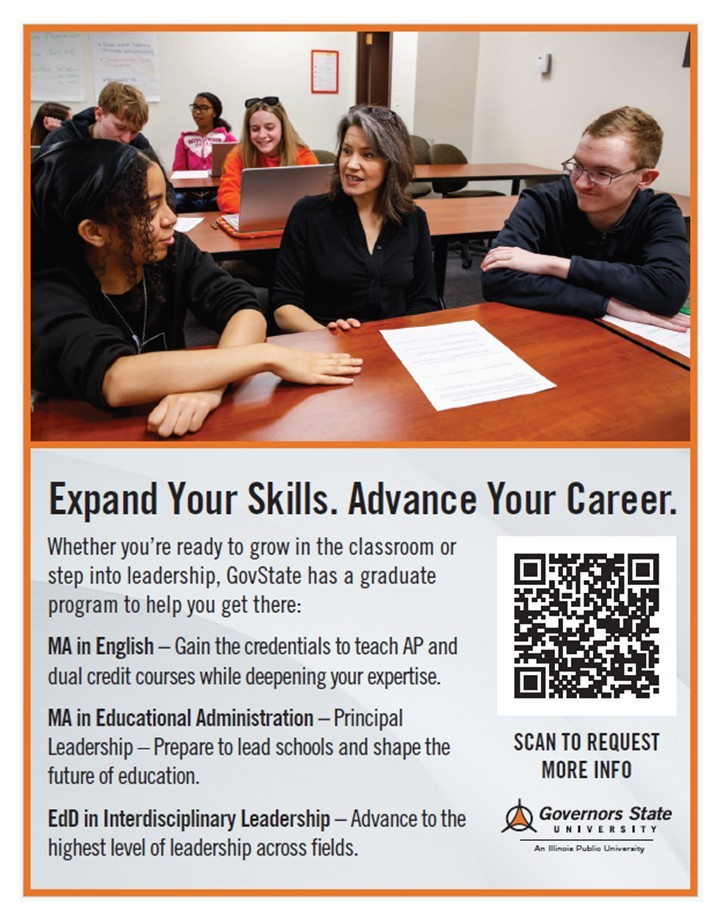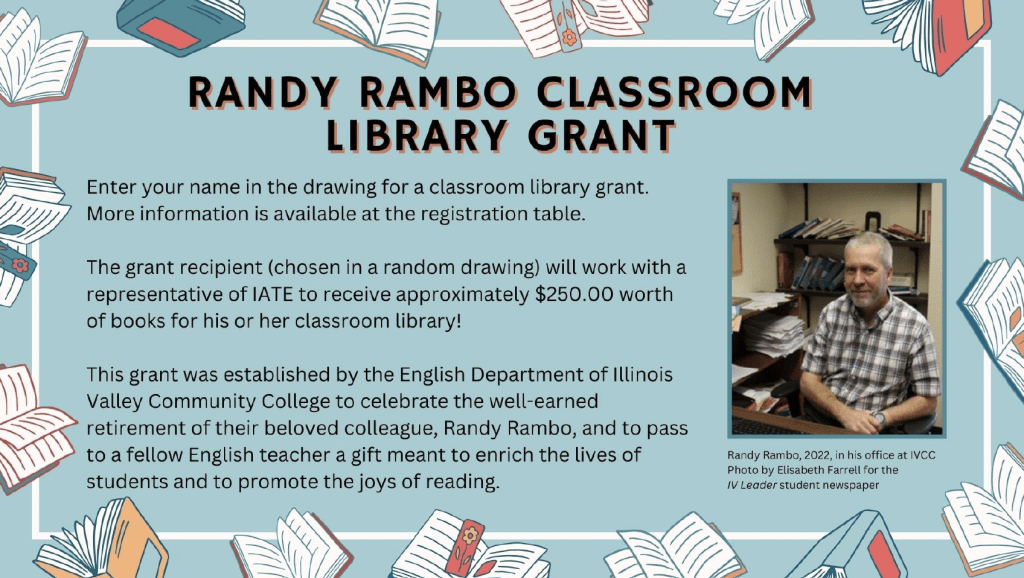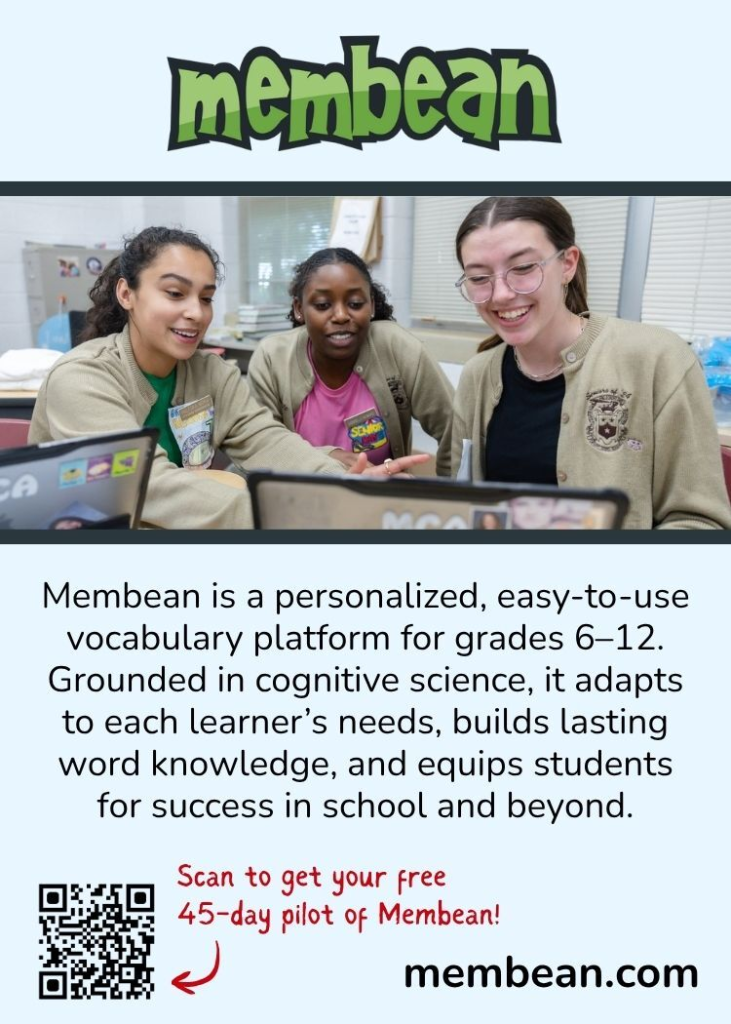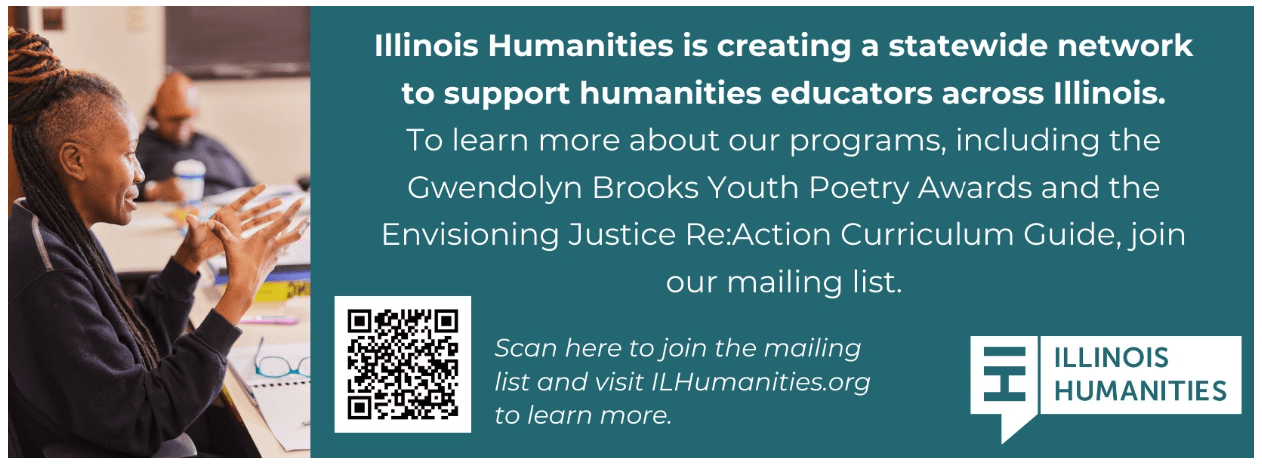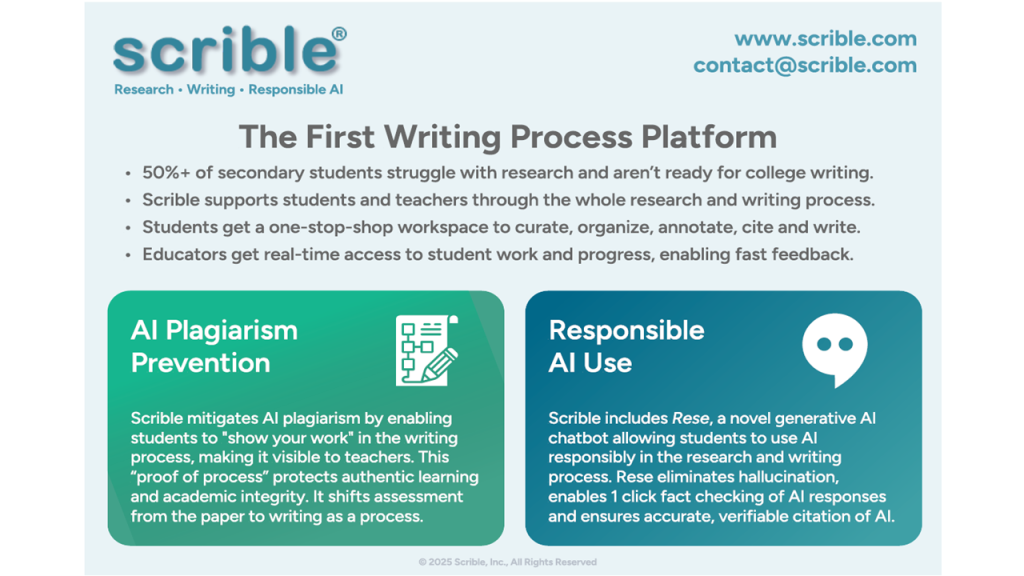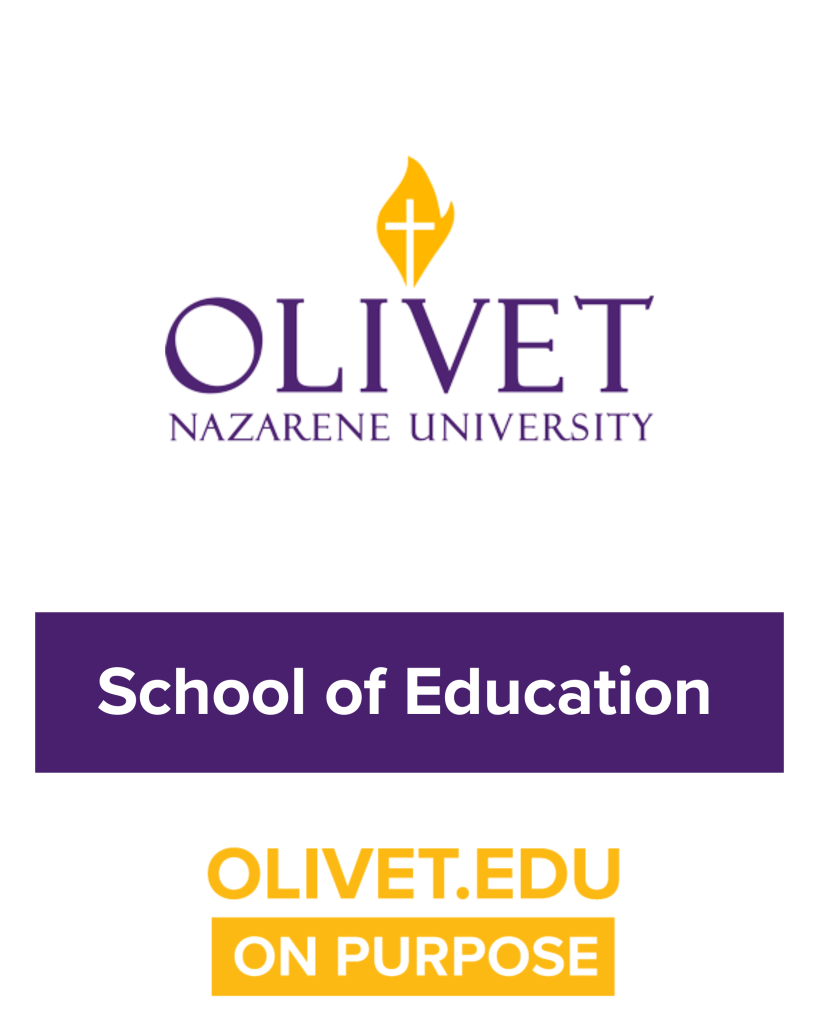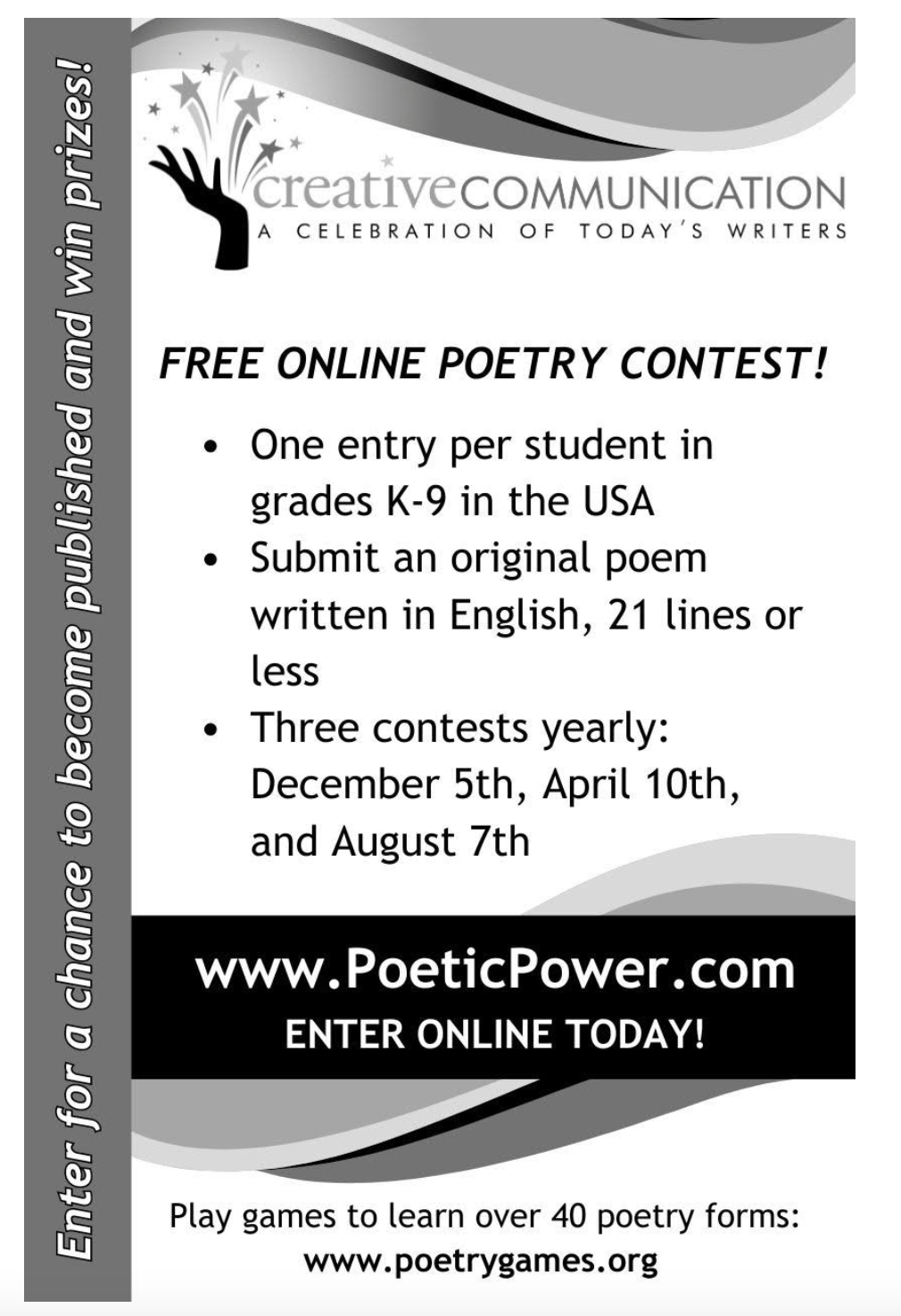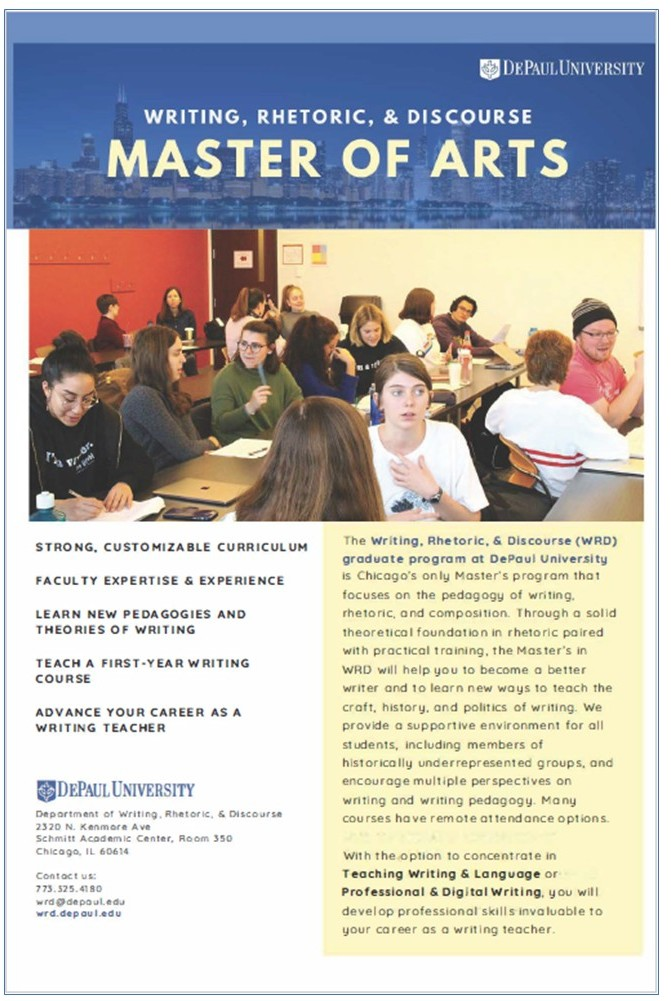| Build your personalized conference schedule by clicking the star in the upper left corner of the box for a desired session. For ease of navigation, use the “Show/Hide All” and Filter tools (filter by conference themes or by any search term). For a session description, click on the title in the session box. NOTE: Links to presenter materials are available in the session description (see “Session materials” at the bottom of the description; only for those sessions for which presenters have supplied materials). |
Friday 24 Oct 2025
8:15 AM - 9:00 AM Plenary Session 1
IATE Business Meeting and General Membership Vote
Conference Overview: Delores Robinson
Welcome Mixer: Kimberly Musolf
9:00 AM - 9:50 AM Breakout Session A
AI in Student Writing: Preventing Plagiarism and Enabling Responsible Use
Victor KarkarM-201
Student-facing AI can support inquiry and learning, but also risks AI plagiarism in writing assignments. We must find a way to preserve authentic learning AND enable students to use AI responsibly. Come hear how you can do this with Scrible, the world’s first “show your work” writing process platform that's been used by Illinois schools for years. It mitigates AI plagiarism by making the writing process visible to teachers and shifting assessment to writing as a process. Scrible now also offers Rese, a brand new genAI chatbot enabling students to use AI responsibly in the research and writing process.
An Eye on YA—Rebecca Caudill and Lincoln Titles for 2026
Nichole Folkman, English Teacher and Librarian, Lincoln Community High School, Lincoln; and Jeanne’ Aken, District Librarian, Beach Park School District, Beach ParkM-202
Come and learn about the new titles for the Rebecca Caudill and Lincoln Teen Readers’ Choice Awards!
The Secret Magic to Literature Circle Success
Amanda Cardenas, Curriculum Coach/Author, Mud and Ink Teaching, LindenhurstM-204
Literature Circles, in my experience with teachers, have had hit-or-miss success. If you are committed to embracing the energy and power of student choice but not sure what’s getting in the way of these units fully clicking into place, this session is for you. In this session we will design Essential Question threads that unite book choices and give teachers the opportunity to focus on skill building and supplementary content. You’ll walk out of our session with at LEAST one fully planned unit! This session requires participants to bring a device to the session.
Connecting Students with Their Communities Through News Media Literacy
Dr. Florian Feucht, Founder, Thinking Habitats, DetroitM-206
Explore media mindfulness as a way to help students connect to their communities and be aware of their wellbeing as media consumers. This session demonstrates an activity in which students reflect on what news is meaningful to them and how it makes them feel. This is a powerful tool to engage students with local and current issues, help them process rapidly-changing news events, and encourage a discourse culture that is inclusive and open-minded. Session attendees will receive free core materials of the Thinking Habitats curriculum.
Family Connections: Celebrating with Family Literacy Night
Deborah Althoff Will, Librarian, Zion-Benton Twp High School, Zion; and Genevieve Sherman, English Teacher, Zion-Benton Twp High School, ZionM-207
Join us for an interactive session where we show how we bring parents and students of all ages together to celebrate literacy. Participants will be able to engage in several creative stations and will receive ready-to-use materials plans to take back to your classroom and community.
Beyond the Letter Grade: Labor-Based Grading as a Path to Justice
Austin Yurasek, English Teacher, Dundee Crown High School D300, CarpentersvilleM-210
As educators, we discuss “ethical and equitable pedagogy,” yet our grading often fails to truly meet students where they are. Labor contracts create a baseline, allowing all students to be held accountable while valuing growth. Writing isn’t about hitting a word count—it’s about revision. By emphasizing meaningful engagement in editing, we shift focus from grades to real-world writing. The goal isn’t perfection, but practice, pushing students to improve beyond the classroom.
Session Materials:
9:00 AM - 4:00 PM Poster Sessions
Poster sessions available for viewing near vendor hall throughout the conference
Poster Session: Life Writing and Social-Emotional Learning
Avery J. ChandlerVendor Hall
This project will explore the implementation of life writing in the high school English classroom, specifically building a unit plan and surveying how life writing skills affect students' social and emotional learning standards. Ultimately, the unit plan will seek to equip students with life writing skills and allow them to develop critical thinking and reflective skills.
Poster Session: Keeping Librarians in Secondary Education
Jacqualyn HenrichsenVendor Hall
My poster will highlight what English educators can do to help with the librarian shortage. This project will provide research about what other schools have done to help librarians and why it is important to keep them in classrooms. English educators are directly impacted by the librarian shortage. They are losing a valuable resource that provides them with text selection, technology assistance, lesson plan suggestions, and so much more.
Poster Session: Disability Representation in the ELA Classroom: Increasing Empathy in Junior High Students
Anna Ngwe
This poster session covers the design of a three-week seventh-grade ELA unit plan with a focus on disability inclusive literature. These lessons will be informed by real-world teachers' strategies and best practices from various case studies. The goal of this project is to synthesize Illinois Social-Emotional Learning Standards with other Common Core State Standards to improve students' perceptions of people with disabilities.
10:00 AM - 10:50 AM Breakout Session B
Write Yourself into Existence: The Power Behind Memoir Writing
Kimberly Millard, Special Education Teacher, Hampshire High School D300, Hampshire; and Dr. Kathryn Hoving, English Teacher, Hampshire High School D300, HampshireM-201
Do you feel like fun has been removed from writing instruction? Are students groaning when informed they will be completing a writing assignment? Writing memoirs brings excitement back and allows students to explore their identities while improving writing abilities. By engaging in their own memoir writing activities, participants will personally discover several ways to incorporate memoir writing into their own classrooms. Practical tips and ready-to-use examples will be provided because sharing memoirs can be cathartic while also building community within the classroom.
Session Materials:
Please email Kimberly.Millard@D300.org and Kathryn.Hoving@D300.org if you are having trouble viewing anything or have questions.
A NOVEL approach to a Perennial Problem: An Empowering Design Plan for Equitable Learning for All
Nicole Boudreau Smith, English Teacher, Adlai E. Stevenson High School, Lincolnshire; Miriam Fisch, English Teacher, Adlai E. Stevenson High School, Lincolnshire; Dawn Forde, English Teacher, Adlai E. Stevenson High School, Lincolnshire; and Samantha Sandefur, English Teacher, Adlai E. Stevenson High School, LincolnshireM-204
In this energetic session, panelists with over 80 years of collective experience share how they design innovations to successfully tackle the puzzle of meeting the needs of a wide range of learners within a single classroom setting. Attendees will participate in interactive scenarios; learn to contribute to effective change; and receive procedures for developing discussion-centric, inquiry units to ignite student curiosity and honor their humanity.
Session Materials:
Moving Beyond, “I’ve Tried Everything”
Dr. Bobb Darnell, Professional Developer, Achievement StrategiesM-206
Even with a lot of support, teachers often believe that they have tried everything and become discouraged. Expand your “everything.” Bring energy, passion, and a positive attitude back to students who are struggling while developing their literacy skills. Become more aware of over 120 practices that will ignite improved student achievement and bring struggling learners the joy of success in school. Learn how to use powerful scaffolds to build the confidence and skillfulness of struggling and disinterested learners. See how you can add to your strategies that motivate students to become engaged, empowered, and ready to achieve without watering down content material and lowering standards. Participants will be involved in fast-paced reflection activities to more closely examine issues and options related to low student literacy performance.
Session Materials:
Making Sense of Our Pedagogical Commitments
Dr. Lauren Reine Johnson, Assistant Professor of English Education, University of Illinois at ChicagoM-207
Pre-service teachers and student teachers are introduced to various pedagogies as students and in-service educators. With so many choices and models, PSTs may feel overwhelmed. This presentation focuses on a literacy methods course through which pre-service teachers of English begin to navigate pedagogy, working to develop and sharpen their pedagogical commitments. The presenter will share how PSTs conceptualize pedagogy alongside particular texts, including their experiences as learners and field observers, and move to revise their pedagogies.
Shreds of Evidence
Dean Bradshaw, English Teacher, Adlai E. Stevenson High School, LincolnshireM-210
Revisions can be a useful tool for students to demonstrate understanding; however, time is the great barrier. How much time do the students need? When will I grade these? In this session, we will work to provide a narrower focus for students to revise small portions of their writing using specific wording from our rubric to practice the skills we want and to demonstrate their ability to meet expectations.
Session Materials:
11:00 AM - 11:50 AM Breakout Session C
Building Resilience: The Role of Feedback, Reflection, and Grit in Strengthening Student Agency
Nicole Lombardo, English Teacher, Adlai E. Stevenson High School, Lincolnshire; and Christy Koulouris, English Teacher, Adlai E. Stevenson High School, LincolnshireM-202
Learn how to empower students to take ownership of their learning by implementing practical strategies to foster resilience and collaboration. Gather practical, structured feedback techniques to use in your next class activity, and watch your students set and reach their goals, build relationships, and take pride in their academic journey.
Session Materials:
Cooking in Composition Courses
Carey Millsap-Spears, English Professor, Moraine Valley Community College, Palos HillsM-204
In this session, I will share a little about my revised composition course. For the first time, I tried cookbooks as the “text” in second-semester composition. This session will explain my process and some early impressions of this change since this semester (Spring 2025) is the first run of the concept. The rationale came from a desperate need to help students engage with writing on their own terms rather than a reliance on ChatGPT.
I am a scholar of popular culture and usually use those types of text in second-semester composition, but that approach was failing me–and my students—with the rise of LLM tools. The idea came to me when I noticed an episode of Kitchen Nightmares on TV. I wondered if that could be the center of the class. I did some research and found that some libraries, including Michigan State University, had a significant historical cookbook collection. I then remembered a fellow scholar at one of the Popular Culture Association Summer Research Institutes I attended who was studying the marginalia in the Bowling Green State University’s library collection of cookbooks. I put the ideas together, and with the help of a $1 per book used bookstore in my community and some donations from fellow faculty, Composition II: Food Writing, rolled out in January. The class process will be discussed in the session. A preview: Each student receives a randomly selected cookbook on the first day of class. That book will be described as “individualized cookbook” in the presentation. The individualized cookbook becomes the text for the class. By that I mean, each individualized cookbook will be the artifact students will use to craft their assignments. COM 102 requires (from the transfer-level codes) a text from which students create arguments and the formal research assignment. Each individualized cookbook is different; thus, students will learn to engage with audience, purpose, context, and the ethos of authorship in a variety of ways.
Status Anxiety by Alain DeBotton
Dr. Laura Gilbert, English Teacher, Lockport Twp. High School, LockportM-206
| The 2005 nonfiction book Status Anxiety by Alain DeBotton has been a meaningful text in my AP Language and Composition class for many years. In the Preface, DeBotton defines status anxiety as a social phenomenon and a great concern. In Part One of the book, DeBotton's five chapters cover his five causes of status anxiety (Lovelessness, Expectation, Meritocracy, Snobbery, Dependence). In Part Two, he discusses the five solutions (Philosophy, Art, Politics, Religion, Bohemia). While reading, my students annotate DeBotton's use of evidence as well as his methods of development. After having read the text, I ask the students to consider how the world has changed in the past 20 years since the publishing of the text. Their final assessment is an essay which proposes a sixth chapter to part one. What is a modern, topical cause of status anxiety in American culture?
|
Argumentalizing the Novel: How to Engage Students Anew in Long-Form Fiction Reading Through Evidence-Based Argument & Criticality
Leslie Lynn, English Teacher, Alcott College Prep, Chicago, Founder and Director, Argument Centered EducationM-207
Argument-centered instruction (ACI) has been receiving heightened attention from education leaders in recent years, as the Brookings Institution study Resolved and the 2024 PBS documentary Beyond Debate indicate. Traditional classrooms are becoming communities of genuine intellectual inquiry, as students engage with challenging texts and content within a framework formed by salient, exigent, rich, and open questions. ACI has been refreshing and in some places redeeming the study of long-form fiction – i.e., the novel. This workshop will use these four great novels to show participants exactly how to argumentalize the teaching of the novels in their curricula: Caramelo, The Great Gatsby, Maus I & II, and Things Fall Apart. This session requires participants to bring a device to the session.
Session Materials:
College Essay Bootcamp: The Power of 1:1 Writing Support to Break Down the Barriers to Students’ Dreams
Sheli Thoss, English Teacher, Amos Alonzo Stagg High School, Palos Hills; Katy Przybylski, English Teacher, Amos Alonzo Stagg High School, Palos Hills; Lisa Thyer, English Teacher, Amos Alonzo Stagg High School, Palos Hills; and Chris Wendelin, English Teacher, Amos Alonzo Stagg High School, Palos HillsM-210
Given the increased quantity of, and emphasis on, essays in the college application process, we set out to incorporate best practices and personal experiences to create a program to support our students, who are primarily first-generation college applicants. In this session, we share activities, strategies, and relationship-building techniques, each designed with the needs of first-generation students in mind, to provide you with tools to help your students overcome barriers and pursue their post-secondary dreams.
Session Materials:
Website:
https://docs.google.com/presentation/d/1FpubSbSsO80QbvmAAwQXzCVTTCoNbQONLWKD2xp14DY/edit?usp=sharing
12:00 PM - 1:00 PM Plenary Session 2
Luncheon with Guest Speaker: PENNY KITTLE
“One Kid, One Reader at a Time”
(a story of a student’s journey as a reader)
12:30 PM - 1:20 PM Breakout Session D
From Pages to Possibilities: A Novel Approach to Amplifying Joyful Latine Voices
Dr. Cindi Koudelka, District Curriculum Coordinator, Fieldcrest CUSD 6, Minonk and Adjunct Professor, Aurora University, Aurora; Melissa Wheeler, Grade 7 Teacher, Mattoon CUSD 2, Mattoon; and Dr. Julie Hoffman, Secondary Teacher Instructional Leader for Literacy and Social Studies, Springfield Public Schools D186, Springfield and Adjunct Professor and Teacher Instructional Leader, University of Illinois, SpringfieldM-201
Representation matters—and joyful Latine stories transform classrooms for all students. This session shares fresh, creative ways to bring vibrant Latine books into novel studies and classroom libraries. Participants will learn about high-quality books featuring Latine representation, activities to support them, and actionable ideas to amplify student voice, pride, and literacy through authentic voices.
Session Materials:
Teaching in the Crosshairs: A Study of Literary Censorship and Self-Censorship in Secondary English Language Arts Classrooms
Amy Lilek, English Teacher, Joliet West High School, D-204, JolietM-202
Curriculum control and literature suppression in ELA classrooms is nothing new. But the current climate has increased the struggle to balance academic freedom with external forces looking to restrict teachers’ autonomy. As censorship efforts grow, a subtler yet equally troubling trend is emerging: teacher self-censorship. This session will explore how and why educators are limiting their own choices in the classroom and what we can do about it.
Session Materials:
From Margin to Center: Moving Students’ Voices to the Middle of the Page
David Smith, ELA Teacher, South Elgin High School, South Elgin and Adjunct Professor of Education and Communication, Judson University, Elgin; and Jennifer Hernandez, Instructional Coach, Dundee Crown High School, DundeeM-204
In research and other text-based writing situations, student voice is often marginalized—the result both of students’ reluctance to claim authority over somewhat unfamiliar topics and of the cold formality of stereotypical academic language. This session will equip teachers with ways to help students gain confidence and authority in their own perspectives while understanding their relationship with other authors and texts, allowing young writers to join ongoing (written) conversations that are meaningful to them.
Session Materials:
- Town_Hall_Role_Reflection_Questions.pdf
- Town_Hall_Flow_Chart.pdf
- Three_Ps_on_Foreign_Aid.pdf
- Critical_Incident_The_Morning_Struggle.pdf
- Conversation_Continuum_BW.pdf
- Coming_to_the_Table_Organizer.pdf
- Coming_to_the_Table_Examples.pdf
- Coming_to_the_Table_About_Independent_Reading_Center_Perspective_Synthesis.pdf
Website:
Notes:
Digital, reproducible copies of most handouts can be found on the conference website and at http://bit.ly/smith_hnez (links to publicly accessible Google Drive folder). Thank you for attending our session!
Three Minute Poems: Mining, Crafting, Polishing, Sharing
Randal Hendee, English Teacher (ret.), MundeleinM-206
This session will guide you through timed writing protocols designed for instant results. The initial goal is to show how students can write—in as little as ten minutes—a spontaneous, no-pressure poem draft. A draft they may eventually choose to revise, edit, polish, and even publish. The long-term goal is to help students and teachers develop a creative writing practice that resists writer's block and channels the spirit of discovery. You will leave the session with tools to help you and your students start, develop, and finish a poem.
Transforming Teaching with Student-Facing AI: What Used to Take Days—Like Grading Assignments—Can Now Be Done Instantly, Using Data to Inform Instruction and Enhance Engagement in Literacy
Jennifer Parisi, Instructional Digital Age Learning Coach, Barrington District 220, BarringtonM-210
This session will explore how AI tools provide real-time feedback and scaffolding to enhance student engagement and save valuable time! By leveraging AI-powered platforms, educators can offer personalized support that meets students at their level, keeping them motivated and engaged. These tools generate data that drives instruction, allowing teachers to maximize small-group time and focus on targeted support. AI-powered tools like Snorkl, Brisk Teaching, and Notebook LM offer instant feedback, personalized support, and interactive learning experiences. Integrating these tools helps teachers meet the needs of diverse learners in literacy while using data to inform and guide instruction, maximize instructional time, and foster deeperstudent engagement. Exp lore how AI tools enhance literacy through real-time feedback and interactive support, with real classroom examples from grades 3-5. These examples can be easily adapted in classrooms at any grade level and across content areas.
Session Materials:
2:30 PM - 3:20 PM Breakout Session E
Two Heads are Better Than One: Practical Tips for Co-Teaching Success
Dr. Katie Hoving, English Teacher, Hampshire High School D300, Hampshire; and Kimberly Millard, Special Education Teacher, Hampshire High School D300, HampshireM-201
Feeling the stress of trying to ensure all students are meeting standards? As educators, we often find that we wear many hats in order to meet all students’ unique learning needs. The workload can be overwhelming and daunting. In this session, hear from two experienced teachers who can share tips and tricks for effective co-teaching. When implemented successfully, the responsibilities become much more manageable, and both teachers and students win!
Session Materials:
Cultivating Multi-Genre Responses to When the Emperor Was Divine
Aileen Heidkamp, Professional Learning Coordinator and English Teacher, New Trier High School, Winnetka; Jane Schumacher, English Teacher, New Trier High School, Winnetka; and Lauren McGinnis, English Teacher, New Trier High School, WinnetkaM-204
In this session directed toward those who teach high school English, teachers will learn how to enhance students’ ability to connect with the novel When the Emperor Was Divine through the use of sketch journals and explorations of poetic forms like haiku, blackout poetry, and redaction techniques. Presenters will share contextual resources to build students’ background knowledge and help them to “see” the landscapes of the novel. Participants will engage in a simulated activity to create a sketch, haiku, blackout poem, or redaction. Student artifacts will be shared.
Session Materials:
MULTIGENRE_RESPONSES_EMPEROR_1024.pptx
Website:
https://drive.google.com/drive/folders/14QCIWyE0pPbjDJzkCBKGy3QMJT6ojEoI?usp=drive_link
Identifying, Preventing, and Addressing AI-Authored Drafts in the Composition Classroom
Adam Oldaker, Associate Professor of English, Joliet Junior College, Joliet; Danita White, Associate Professor of English and Dual Credit Liaison, Joliet Junior College, Joliet; and Kerry Lane, Professor of English and Composition Coordinator, Joliet Junior College, JolietM-210
Three JJC English faculty members will share their insights on AI in the composition classroom and discusshow it has transformed and will continue to transform their lessons and projects. They will outline their departmental policy on AI use in college composition and explain its rationale. Additionally, they willdemonstrate how they identify AI-authored essays using multiple AI detection services and by analyzingcommon AI language patterns and paragraph structures. The faculty will also describe various approachesthey use to address AI-authored compositions.
3:30 PM - 4:20 PM Breakout Session F
Agency, Advocacy, and Action: The Art of Shaping Global Citizens and Defining Solidarity
Dr. Sawsan Jaber, NBCT, Education Unfiltered Consultant and English Dept Chair, Maine West High School, Des Plaines; and Amira Hattab, English Teacher, Maine West High School, Des PlainesM-201
English classes are natural spaces to read the world and expand the walls of the classroom space beyond books and people in the physical space. The opportunity to do so allows for English teachers to shape global citizenship and show their own solidarity through their craft. How do we model solidarity and global awareness and action? How do we leverage grammar and other discipline-related skills and crafts in the name of voice, advocacy, agency and change? As new laws emerge in an attempt to censor and prohibit this work from impactfully and effectively happening in classrooms, equity advocates in schools across the country struggle to engage in liberatory instruction (Love, 2000). This workshop will tackle the challenges of being equitable in school settings by unpacking equity and solidarity through action. Equity work is meeting students’ social emotional needs, building criticality (Mohammed, 2020), getting to know students beyond a surface level (Singleton & Hays, 2008), integrating holism (Safir & Dugan, 2021) in our views of students and the funds of learning they bring into the classroom (Jaber, 2022).
It’s Your Cue! Using Shakespeare's Cue Scripts to Unpack Shakespeare’s Folio Clues
Kevin Long, Professor of Theater, Harper College, Palatine; and Mary T. Christel, Communication Arts Instructor (retired)/Author, D125, LincolnshireM-202
Shakespeare’s work provides a wealth of themes and complex characters to engage our 21st century students, though Early Modern English provides challenges in reading and understanding his plays for many students. We can, and should, supplement any modern edition and its resources with excerpts from the First Folio as well as cue scripts similar to those Shakespeare’s actors used to apply the surprising clues the Bard embedded in his plays often missing or obscured in the edited versions students read.
Session Materials:
- CUE-SCRIPTS-HAMLET-Act-I-Scene-1-Marcellus-Barnardo-Horatio-Francisco-Ghost.pdf
- HAMLET-Act-I-Scene-1-KEEPER-OF-THE-BOOK-IATE.pdf
- IATE-2025-CUE-SCRIPT-HAMLET-Presentation.pdf
Website:
https://www.kevinlongdirector.com
Notes:
Hear ye, hear ye, good friends and fellow lovers of the Bard!
Join us for “It’s Your Cue! Using Shakespeare's Cue Scripts to Unpack Shakespeare’s Folio Clues” — a spirited exploration of how Shakespeare’s original stage practices can unlock new discoveries for our 21st-century students!
Together, we’ll dive into cue scripts, glimpse the actor’s world of the Globe, and uncover the secret “Folio Clues” Shakespeare left behind to guide his players toward truth, clarity, and emotion.
“The play’s the thing…” — and this session will show you why!
The Forgottonia Project: Using Local History & Storytelling in the Classroom
Joey Brewer, Dean of Students, Spoon River Valley Schools, London Mills Member of Illinois Humanities’ Foreground Rural Advisory Committee, Teach Plus, and Smithsonian’s Democracy in Dialogue Virtual Exchange (DiDVE)M-204
What happens when students see their own community’s history as the center of their learning? The Forgottonia Project uses podcasting, creative writing, art, and oral history to connect students with local stories—from Edgar Lee Masters’ Spoon River Anthology to the legacy of Free Frank McWorter. In this interactive session, we’ll explore how rural voices and overlooked histories can engage Gen Z learners, empower teachers as practitioners, and showcase authentic, performative assessments. Together we’ll examine research on student disengagement, the power of performative assessments, and the role of humanities-centered education in difficult times. Participants will experiment with strategies like the Question Formulation Technique (QFT) and leave with adaptable tools to create learner-centered environments that amplify student and teacher voices while using stories, past and present, to grow more engaging classrooms.
Session Materials:
Plot Twists and Power Ups: Turning Curriculum into Gameplay
Nathan Murrin, English Teacher, Alden-Hebron High School, D-19, HebronM-207
One of my fascinations as an educator has been gamification, creating novel ways to teach, review, and contextualize content. In this breakout session, I will present some of the activities I have created, such as a book scavenger hunt to correspond with Fahrenheit 451, a crime scene investigation that corresponds with Macbeth, or vocab battleship, a vocabulary review game I use quite often in my classroom. During this session, I will offer some advice on what to consider when creating games or interactive classroom experiences, as well as explain how utilizing AI can make a seemingly daunting task very achievable. This session will most appeal to middle school and high school teachers who seek novel ways to incorporate active learning and gamification into their lessons.
Session Materials:
Literature to Life: Infusing Authentic Narratives and Experiential Learning in the High School English Classroom
Claire Walter, English Dept. Chair, Wolcott College Prep, Chicago; and Cheyanne Becker, English Teacher, Wolcott College Prep, ChicagoM-210
As English teachers, we strive to build a bridge between literature and lived experience. Thus, this presentation will focus on a method of instruction that enhances textual relevance and centers authentic first-person narratives by including diverse guest speakers, current event curricular tie-ins, and experiential learning activities in the high school classroom. Specifically, presenters will share examples of how they brought The Kite Runner, Night, Just Mercy, and Lord of the Flies to life within the English classroom to support student engagement, foster compassion and empathy, and push analytical inquiry. The presenters, four experienced English teachers, will engage participants with materials, discussion, and student feedback, while also offering suggestions and resources for further application and adaptation to texts beyond those included in the presentation.
4:30 PM - 5:20 PM Breakout Session G
Reclaiming Novel Study with Blended Learning
Mike Bundao, English Teacher, Lake Park High School, Roselle; and Amanda (Amy) Cavanaugh, English Teacher, Lincoln Way East High School, FrankfortM-201
While NCTE makes a compelling case for “de-centering novel studies,” it is worth wondering what we might lose if we lose novel study all together. Blended learning is an educational approach that leverages technology, scheduling, and physical spaces to optimize engagement, learning, and human development in students. Mike and Amy are high school teachers who have leveraged blended learning to optimize student engagement in traditional novel study using the Harkness method of discussion founded at Phillips Exeter Academy in New Hampshire. This session will introduce you to the concept of blended learning and help you advocate for its adoption in your school or classroom. We will explain the rationale and method of Harkness style discussion and its application to novel study, and attendees will participate in a simulated “flex day” discussion that incorporates blended learning and the Harkness method of discussion.
SOLUTION ROOM, Building Bridges: Tier 1 and Tier 2 Literacy Approaches for Engaging Reluctant and Diverse Learners
Courtney Spreitzer, Interventionalist and High School English Teacher, Grant Community High School, D-124, Fox LakeM-202
This Solution Room session aims to offer a space for teachers to seek and share advice on the challenges we face in teaching literacy to diverse and at-risk students. With years of experience as a high school English teacher in a Title 1 environment, PBIS Teacher Specialist, and T3 Interventionalist, the facilitator will lead us in collaborative problem-solving focused on effective Multi-Tiered System of Support (MTSS) practices. We will address challenges such as implementing Tier 1 and Tier 2 literacy supports for novel study in diverse classrooms, developing strategies for amplifying all voices in the English curriculum, supporting struggling readers, and building collaborative networks within departments to strengthen literacy instruction for at-risk students. Everyone will have the opportunity to participate in structured peer consultations, where we can brainstorm and develop practical strategies that not only engage our learners but also provide the necessary support for our struggling readers and writers.
Session Materials:
ESCAPE THE BOOK!: Escape Rooms and Other Alternative Assessments
Nicoline Shoffer, Teacher of English, Theater, and Art, Fenwick High School, Oak Park; and Judith Tichacek, Librarian, Fenwick High School, Oak ParkM-204
This presentation highlights engaging methods such as educational escape rooms and creative response projects in lieu of traditional assessment methods. Escape rooms transform assessment into an immersive experience, where students apply course concepts to solve puzzles, decode clues, and work as a team. These activities reinforce content knowledge while improving collaboration and engagement. Similarly, creative responses—such as digital storytelling, podcasts, visual art, and role-playing—encourage students to connect with material in meaningful and personal ways. Throughout the presentation, examples of these strategies in action will be shared, showcasing how they align with learning objectives and standards. Additional Alternative Assessment ideas will be shared in addition to the Escape Room format.
Poetry and Song
Kevin Aldrich, English Teacher, Routt Catholic High School, JacksonvilleM-206
Meter, rhyme, imagery, sensual language, and ideas are basic to both poetry and lyrics. This session will explore parallels in the English folk tradition exemplified by the centuries’-old "Scarborough Fair" and Bob Dylan's modern rendition "The Girl from the North Country”; delve into the art song with original settings of the iconic poems “The Lake Isle of Innisfree,” by Yeats, Dickinson’s “Wild Nights!” and Frost’s “Stopping by Woods on a Snowy Evening”; and discuss and demonstrate the lyrical and musical process of writing original songs. The presenter is a veteran English teacher and a singer-songwriter who performs professionally in Central Illinois.
Session Materials:
Notes:
These are the poems and song lyrics I will discuss and perform.
Enduring Monuments: Using Kindred to Bridge the Gaps
Deanna Brossman, NBCT ELA-AYA Geneseo High School, Geneseo CUSD 228, GeneseoM-207
High school teachers that work with students who lack the skills and confidence to be college ready know how difficult it is to capture their attention in the last quarter of the senior year. In this breakout session, I will walk you through a unit designed to engage students in a real-world debate by centering the discussion on controversial monuments in a way that not only captures their interest and reinforces their researching skills, but also offers shared historical context to one of America’s most troubling political choices without alienating students from any particular partisan stance. This session requires participants to bring a device to the session.
Session Materials:
Presenter Notes: This is the link to my presentation. Within the slide show, there are links to several other resources (as websites or Google Docs) that I am sharing. If you hear me mention a resource that is not currently linked, I can always add it to the resource folder.
The Dollar Store Made Me Do It
Carrie Santo-Thomas, English Teacher, Warren Twp. High School D-121, O'Plaine Campus, GurneeM-210
Plastic Easter eggs, toy microphones, half-stacks of Jenga blocks, and dice are just a few of the unconventional tools favored by your favorite type-B teacher. Join Carrie for a virtual stroll through the aisles of the dollar store and fill your cart with low-cost, high-impact literacy activities. These strategies are grounded in standards, adaptable across grade levels and content areas, and designed to boost engagement and student choice. Come ready to think outside the box and discover meaningful learning opportunities in unexpected places.
4:30 PM - 5:20 PM District Leader Meeting
All District Leaders (contact DL Coordinator John Hayward if you are not able to attend this discussion)
5:30 PM - 6:20 PM Cocktails & Hors d’oeuvres
Enter the Basket Raffle to benefit the IATE Minority Scholarship
6:30 PM - 8:30 PM Plenary Session 3, Friday Dinner
Awards and Raffle Drawing
Dinner with Guest Speaker: TOYA WOLFE,
IATE Author of the Year
Saturday 25 Oct 2025
8:15 AM - 8:50 AM Plenary Session 4
PLENARY SESSION 4
Welcome and Speaker Introduction:
Opening Speaker: KELLY JENSEN
9:00 AM - 9:50 AM Breakout Session H
Getting Creative with Nonfiction
Kelly Jensen, Editor and Author, Co-host of Hey YA! PodcastM-201
Nonfiction isn't just a five-paragraph essay, but when was the last time you've flexed your own creative muscles when it comes to writing true stories? This workshop blends the best of both learning about the fantastic world of nonfiction and trying your own hand at writing a short work of nonfiction. Attendees will walk away with an understanding of the different forms of nonfiction, appreciation and inspiration for the ways information can be presented, and recommendations for some of the best young adult nonfiction available today. Sharing in this workshop is welcome, though it will not be required.
Session Materials:
Pages of Joy, Stories of Pride: A Novel Approach to Centering Queer Literature
Dr. Julie Hoffman, Secondary Teacher Instructional Leader for Literacy and Social Studies, Springfield Public Schools D186, Springfield and Adjunct Professor, University of Illinois, Springfield; Dr. Cindi Koudelka, District Curriculum Coordinator, Fieldcrest CUSD 6, Minonk and Adjunct Professor, Aurora University, Aurora; and Melissa Wheeler, Grade 7 Teacher, Mattoon CUSD 2, MattoonM-202
When representation is lacking, children can be made to feel invisible, unimportant, or even unworthy. Representation that is filled with stereotypes and misconceptions can perpetuate biases, divisiveness, and hate. This presentation intends to do the opposite, celebrating books that center LGBTQ+ characters with joy and love. We will feature books for all ages—board and picture books, middle grade, YA, and books for grown-ups.
Session Materials:
Get Connected: Working with Your School Librarian
Jennifer Connolly, Librarian and Media Specialist, Granite City High School D-9, Granite CityM-204
Long-time teacher, new school librarian Jennifer Connolly will take you on a quick journey of her first year in the library and explore ways to build connections between students and books, between teachers and librarians, and between libraries and communities. With tips from how to better your readers' advisory to ideas and plans on how to build programs that connect classrooms and library spaces, let's look at ways to get connected that benefit students and teachers alike. How can we use this collaboration to foster reading growth and help students become "real" readers?
Living the Life of a Writer: 6 Practices Student Writers Have, Know, and Do
Jennifer Vincent, Middle School Language Arts Teacher, Bannockburn School District 106, Bannockburn Author of Living the Life of a Writer (late 2025 release)M-206
Everyone is a writer. We write texts and emails. We write for ourselves and for others. We write novels or write about novels. Inviting students into living the life of a writer shifts the focus of our instruction from the writing to the writer. In this session, educator and author Jen Vincent will guide you through the six practices writers have, know, and do while sharing strategies you can try tomorrow with student writers.
Pedagogies of Voice
Dr. Sawsan Jaber, NBCT, NBCT Assistant Professor and Founder of Education Unfiltered Consulting, consultwithsawsan.comM-207
This session addresses the knowing-doing gap that keeps us from implementing an equity-centered, inclusive pedagogy in the face of global unrest. Grounded in seminal frameworks like Understanding by Design and the work of Paolo Freire, bell hooks, and Gloria Ladson-Billings, we will explore the intersection of equity and pedagogy and the toxins that incarcerate our imaginations. The session focuses on elevating student voice and agency, while empowering teachers as healers and community-builders. In light of rising political censorship and systemic inequities, participants will explore concrete tools and practices for transformative, equity-driven pedagogy that fosters Identity, Belonging, Inquiry, and Efficacy, the four domains of Agency, for both educators and students within today’s tumultuous global context.
Getting Students INTO Analysis
John Hayward, Teacher/Librarian, Naperville Central High School, Naperville, Adjunct Professor of English and Education, North Central College and Waubonsee Community CollegeM-210
Teaching the previously dreaded analysis skill becomes an anticipated opportunity for discovery and reasoned defense with a new approach. Get students into analytical reading and writing using a series of engaging warm-up activities that will spark interest, inspire investigation, and boost confidence. No more dry and boring book talks! Guide students through the fields of art and music first. Transition to crime scene analysis to make clue searching fun again. Involve AI if you dare. When students finally land in the world of text, they will know how to argue for their interpretation with conviction and solid evidence. Come learn new ways to approach analysis!
Session Materials:
Notes: Continue the conversation with John at jhayward@naperville203.org.
10:00 AM - 10:50 AM Breakout Session I
Motivation, Meaning, and Mirrors: Connecting Novels to Action Research
Dr. Cindi Koudelka, District Curriculum Coordinator, Fieldcrest CUSD 6, Minonk and Adjunct Professor, Aurora University, AuroraM-201
How can we spark students' motivation and foster deep engagement that supports student agency? This session explores the power of inclusive, student-centered practices that honor student identities and experiences. Participants will explore dynamic strategies that connect novel studies to student-led action research that empowers students as readers, researchers, and change-makers and elevates student agency to promote meaningful connections and creates authentic opportunities for discussion and reflection.
Session Materials:
Nurturing Novel Personal Connections
John Barrett, English Teacher, Pleasant Plains Middle School, Pleasant Plains; and Jennifer Gouin, English Teacher, Lincoln Community High School, LincolnM-202
Is the field of education draining you mentally, emotionally, or even physically? Effective education in the 2020s requires lots of human interaction despite the oftentimes stifling administrative rules, never-ending paperwork, ever-evolving technology, and looming changes being brought by AI. This breakout session is led by two seasoned teachers, Jen Gouin and John Barrett, who will share personal stories of connection and community building they have experienced with their colleagues and who will discuss the ways personal connections made at school always positively impact student learning and teacher survival.
Session Materials:
https://sites.google.com/a/ppcusd8.org/team-6/barrett-teacher
Notes: IATE Past President Jen Gouin and experienced teacher John Barrett journey into the daily adventure that teachers embark upon in their professional and personal lives: Nurturing Novel Personal Relationships.
The CEIT Paradigm for Nonfiction Writing
Kevin Aldrich, English Teacher, Routt Catholic High School, JacksonvilleM-204
In non-fiction writing, there are only four basic “moves” a writer can make. An acronym to help student writers remember them is CEIT, for claim, explain, illustrate, and tie-back. Teaching students the CEIT method for writing non-fiction texts gives students the ability to construct coherent and well-supported paragraphs and essays. Once students become adept with the CEIT paradigm, they can choose which features to use and which to leave out. How much explanation is needed? How many examples are necessary? Does each illustration need to be analyzed or is the connection between the evidence and the claim obvious enough? These are questions more adept writers can answer once they become proficient and confident writers by following the CEIT “moves.” This presentation will thoroughly explain the CEIT paradigm and use student examples to show how it applies to paragraph construction and to both simpler and more complex essays.
Session Materials:
Improve Vocabulary with Improv and Dialogue
Dr. Andrea Parker, Ed.D, Middle School Reading Teacher, Robert Fulton Elementary School, Chicago and Adjunct English Professor, Chicago State University, ChicagoM-207
Do you want your students to grow in their speaking abilities? What about writing and vocabulary usage? Then learn how to infuse improvisation strategies and one-act playwriting to improve speaking, meaningful tier 2 vocabulary speaking and writing usage, engagement, and creativity in our classrooms. Session attendees should bring their device to this session.
Session Materials:
The Larry Johannessen New Teacher Forum
Moderator: Dr. Elizabeth Kahn, Professor of English, Northern Illinois University, DeKalb; Casey Brucks, Pre-service Teacher, Northern Illinois University, DeKalb; Bre Freund, Pre-service Teacher, Northern Illinois University, DeKalb; Macy Papp, Pre-service Teacher, Northern Illinois University, DeKalb; Michelle Robinson, Pre-service Teacher, Northern Illinois University, DeKalbM-210
In this interactive Café Session, four pre-service teacher candidates will each present a challenge they have faced in student teaching or in their clinicals and the instructional strategies they have developed and implemented to address these challenges. Student teachers, teacher candidates, teachers in their first few years of service, and experienced teachers who care about the struggles of novice teachers are encouraged to attend and share their ideas.
Session Materials:
11:00 AM - 11:50 AM Breakout Session J
CAFÉ SESSION, Reading Curricula and Bridge Programs
Moderator: Dr. Julie Bokser, Associate Professor and Chair of the Department of Writing, Rhetoric, and Discourse, DePaul University, Chicago; Dr. Timothy Elliott Assistant Professor of the Department of Writing, Rhetoric, and Discourse, DePaul University, Chicago; and Dylan Cabrera; Graduate Assistant; Department of Writing, Rhetoric, and Discourse, DePaul University, ChicagoM-201
We are writing faculty seeking feedback on curriculum we are developing for a summer reading course for at-risk, newly admitted students at DePaul University. Here are the questions we’d like to explore with our audience: What models of Reading and Bridge programs have you seen succeed at teaching complex reading skills to struggling readers entering college? How do we integrate reading and writing so students see how these activities inform one another? What are effective ways of helping students branch out from their current interests to reading (and writing) across the curriculum? We welcome attendees to this Café Session, a moderated discussion between panelists seeking advice and audience members willing to share experiences and knowledge with the overall goal of learning more how best to help our at-risk students succeed.
Session Materials:
Notes:
We're very motivated to hear your experience with college-bound, under-prepared students. What do they need to succeed?
CAFÉ SESSION, Build Your Stack®: Teachers as Readers and Writers
Jennifer Vincent, English Teacher, Bannockburn School District 106, Bannockburn; Carrie Santo-Thomas, English Teacher, Warren Twp. High School, Gurnee; Sarah Miller, NCTE Senior Coordinator of Book Initatives and Intellectual FreedomM-202
Making novel connections is what NCTE’s Build Your Stack® is all about! Join current and former committee members to explore tips for book selection, themed text sets, and using books to spark student writing. You’ll leave with fresh titles, creative ideas, and new ways to connect reading and writing in your classroom. Proposed Topics (ranked): 1. Thoughtful book selection 2. Using texts as a catalyst for writing 3. Thematic sets of books and classroom.
Understanding the Cycle of Liberation Through Literacy, Writing, and Inquiry
Dr. Amy Vujaklija, Director of Educator Preparation, Governors State University, University Park; and Dr. Lisa Pennington, Associate Professor Elementary Education, Governors State University, University ParkM-206
Harro’s (2008) Cycle of Liberation offers a framework for planning interdisciplinary units combining literacy, writing, and social studies for transformational change. Anchored in historical or contemporary social movements, activities presented will guide students in exploring causes relevant to their lives. Participants will learn the relevance of the framework for organizing civic-minded interdisciplinary units to engage students.
Session Materials:
“This is heavy:” Rethinking the Research Essay with Alternate History and Lateral Reading
Dr. Ryan Smith, Communication Arts Teacher, Naperville North High School, District #203, Naperville; and Kate Rogers, Librarian and Learning Commons Director, Naperville North High School, District #203, NapervilleM-210
A few years ago, I discovered the Alternate History topic from John Warner’s “The Writer’s Practice,” and it changed my attitude towards teaching research. I realized conventional research databases wouldn’t work for this project, and I needed the work of the school’s librarian to develop materials for a new research method: lateral reading. This breakout session will be co-presented, and we will share our experience developing this novel project.
Session Materials:
12:00 PM - 1:20 PM Plenary Session 5, Past Presidents' Luncheon
Past Presidents’ Luncheon
Randy Rambo Classroom Library Grant Drawing
Luncheon Featured Speaker: Dag Juhlin
1:30 PM - 2:20 PM Breakout Session K
Providing Feedback That is Nurturing, Productive, and Sustainable
Kate Sjostrom, Senior Lecturer and Associate Director of English Education, University of Illinois at Chicago; and Michael Rojas, English Teacher, Argo Community High School, SummitM-201
This session’s presenters—a high school teacher and a teacher educator—will describe their project to refinethe tone and content of their and their students’ writing feedback to support writers’ agency and growth, a process-oriented approach, and relationship-building in the classroom. They will also describe how such work can lead to more sustainable feedback practices.
Session Materials:
Let’s Talk About News: Bringing Local Issues into Text-Based Discussions
Dr. Florian Feucht, Founder, Thinking Habitats, DetroitM-202
Explore how text-based discussions around local news can build cross-disciplinary skills and motivate students to find their place and voice in their communities. This session shares results and free materials from the federally funded THINKING PRO media literacy curriculum unit, which connects reading, thinking, and writing skills.
Participants will learn a framework for meaningful text-based discussions that help students comprehend texts, think critically about local issues, and connect content to lived experiences. The session also offers tools for guiding collaborative problem-solving, respectful dialogue, and active participation—adaptable for diverse classrooms and student needs.
Smarter Strategies for Online Research
John Hayward, Teacher/Librarian, Naperville Central High School, Naperville; Adjunct Professor of English and Education, North Central College and Waubonsee Community CollegeM-206
Today's student researchers must know how to find and evaluate reliable information from databases and beyond. Learn the 13 skills post-secondary schools say are essential for success. Finding, evaluating, and citing library database sources is only the beginning. We will also discuss how to use targeted Google searches to find credible, local sources and potential experts. Smarter, more effective research skills create more confident and satisfied lifelong learners.
Session Materials:
Notes: Continue the conversation about research with John at jhayward@naperville203.org.
Synthesizing Stories: From Pages to Play
Linhhai H. Nguyen, English Teacher, Wheeling High School, D214, WheelingM-207
Diving into studies about characters, plots, and themes are typical and essential tasks of novel units within junior high and high school English classrooms. To build upon the traditional end-of-unit test or essay, join this session presenter to extend the idea of a culminating project into the realm of creativity, critical thinking, and all-out controlled chaos! This session will examine the gradual process of students’ learning of story structure and character development. This presentation will then describe the culminating project called the “Synthesis Play” where students are challenged to develop a script that involves the interactions of characters from major novels they’ve read for the year while still adhering to textual details and applying key elements of story structure and character development. The end product gives students opportunities to perform their scripts live or create mini-videos to showcase their thinking, creativity, and joy! This session will provide concrete suggestions for sequencing learning experiences so that students examine story structure and character development through various texts until they’re ready to unleash their analytical and creative skills; session attendees will also have a chance to see student products and receive artifacts that they can start using in their own classrooms.
Session Materials:
The Power of Story: A Novel Way to Find Healing from Hardships and Trauma
Dr. Julie Hoffman, Secondary Teacher Instructional Leader for Literacy and Social Studies, Springfield Public Schools D186, Springfield; Adjunct Professor and Teacher Instructional Leader, University of Illinois, SpringfieldM-210
Healing from trauma can be scary, messy, and complicated. Fortunately, the power of story can help. Sharing stories of hope and resilience are one of many pathways toward healing. This session will cover some of the basics regarding trauma, including a review of the physiological responses (fight, flight, freeze). The session will also include discussion about how the vicarious experiences of fictional characters help a reader know they are not alone, introduce new coping mechanisms, and provide a safe place to approach traumatic experiences. The presenter knows that all books are not created equal. Not only will she explain how some “bibliotherapy” books sometimes miss the mark, but she will introduce YA novels that are much more effective.
2:30 PM - 3:20 PM Breakout Session L
IATE Executive Board and District Leaders Meeting/Conference Debrief
Executive CouncilM-201
IATE Executive Board and District Leaders Meeting/Conference Debrief
Exploring Effective Instructional Strategies for Pre-Service Teachers
Dr. E. Mariah Spencer, Assistant Director of Undergraduate Studies and Coordinator of Educator Licensure in English, Northern Illinois University, DeKalb; Naya Haller, pre-service English Teacher and panel organizer, Northern Illinois University, DeKalb; Jacqueline Costa, pre-service English Teacher, Northern Illinois University, DeKalb; Zoe Rehders-Blasco, pre-service English Teacher, Northern Illinois University, DeKalbM-202
This panel presentation is organized and delivered by pre-service teachers, with a particular intended audience of teachers and pre-service teachers who seek new and novel instructional strategies. Presenters will provide evidence-based recommendations on the most effective student-centered instructional strategies for engagement and learning, ways to balance engaging lessons with the demands of classroom management, and ways teachers can build confidence in selecting and adapting strategies for diverse learners. By sharing insights gained through research, we hope to equip session attendees with practical strategies they can confidently implement in their classrooms. This presentation will serve as a resource for teachers who are looking for structured, effective, and adaptable approaches to instruction. The panel’s goal is to bridge the gap between pre-service teacher preparation and in-service classroom effectiveness, ultimately contributing to stronger and more engaging teaching practices.
Session Materials:
Teaching About Censorship and its Effects Using Video Games and Popular Media
James Drown (Senior Lecturer) and Mark Brand (Senior Lecturer) University of Illinois at Chicago, ChicagoM-204
Recently, the NCTE released a book reflecting concerns over censorship and teaching. The NY Times has also published about the effects of Chinese censorship on the worldwide production of video games. Given the ways in which many classrooms are being (invisibly to students?) censored, it seems like an opportune moment to teach students about how censorship works and its impact using their interest in video games and other popular media.
Return to 2025 Conference Home Page
